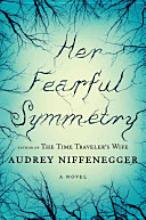The Jay County Public Library book group met to discuss this book last Monday. (Sigh) I took so long to stew about the meeting that now I'm not sure what I want to say.
This piece of nonfiction is a fascinating narrative of two men, an America author newly living in Florence and a noted and respected Italian journalist, who investigated a series of cold-blooded murders in the hills around Florence, Italy. In the process of their investigations the Italian was arrested for the crimes and the journalist had to flee back to America to avoid the same fate.
But that didn't end the friends' investigations and this book is the product. Preston and Spezi had been on TV in a special by Stone Phillips and that is what prodded me into reading their book. The story of their trials and difficulties with Italian authorities and the strange justice system is as engrossing as the stories of the murders. I couldn't wait to finish it to see how the book got completed and if they ever found out who the killer was.
The murders had begun in 1968 and continued well into the 1980s with many people being investigated but no hope of any real closure. The crimes were perpetrated always against young lovers and the bodies were terribly mutilated.
As the reader you delve into more than just the murder investigation. Generations of secrecy and taking care of ones own, misuse of the justice system, incompetent authorities, sub-cultural mores, and ideas about social strata are all examined. I was shocked to find out how different the laws are in Italy and on what little evidence one can be arrested and even convicted. Several people were in fact convicted only later to be found innocent!
I read this a few years ago with my Monroe adult group and that discussion was animated, lively, and so much fun. The hosts of the discussion had brought maps, copies of news articles and transcripts from the Stone Phillips interviews. Most of us if not all were equally entranced with this book.
Alas, The JCPL group did not feel the same. Maybe two or three of us were glad we read it. The rest either didn't like it at all or didn't even read it. Anyway, that so disappointed me. I am thinking that the JCPL group likes to read “shallow” or in other words they don't want to read anything that is disturbing, that they have to really dissect or think deeply about, or anything that questions their values or ideals. Also, many of them won't read anything that has “ugliness” like death, or persecution which leaves out holocaust material, books where the people struggle with abuse, poverty, etc, and any book about current war issues. They love to read what they refer to as “sweet,” “beautiful,” or “warm.” Now, that is not a bad thing. There are a lot of people like that and they read what makes them happy, and once in a while I like that too. However, that is not what I want to do steadily. I want to feel, really feel, and think, wonder, predict, be shocked, surprised, etc. especially when reading a book that will have a discussion. I don't always have to like a book to finish it, or see value in the discussion. I must the oddest of oddball readers?























